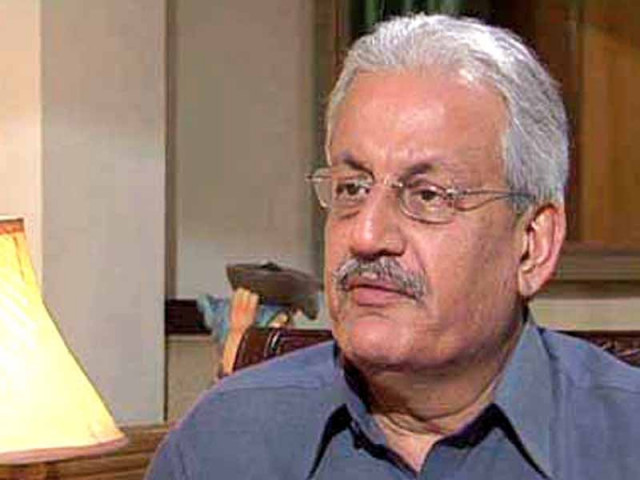Analysis: Bring out the bulldozers
The thin attendance meant that there was already knowledge that the opposition would quickly ask for an adjournment.

Does Parliament mean business?
Given Washington’s perceived impatience and the reported already-reached consensus between the powers that be in Pakistan on the matter, many feared that the debate on ties with the US would be a bulldozed through Parliament.
The notion was that, now that Pakistan has made its point, and a backdoor agreement reached, both between the civil and military authorities within Pakistan and between Islamabad and Washington, the exercise of bringing the matter to Parliament was more of a cosmetic measure.
It would be a quick debate, two, or maybe three, days, some consensus reached between the government and opposition in another backdoor understanding, and voila!
The scepticism is not misplaced. Nothing that the Parliament has done over the years has really mattered, has it? The executive has always ruled over the legislative arm. Resolutions, particularly those on foreign policy, the few that there have been, have been ignored – that too by consensus. In fact, the recent recommendations of an all-parties conference – though technically not a parliamentary body – regarding relations with the US have also been consigned to the ‘whatever-happened-to-that’ column of history.
Why would Tuesday’s session of the joint sitting meant to debate recommendations on future relations with the US be any different?
After all, a total of 172 members, of a sitting that should have had 446, were present at the time proceedings started, according to monitoring body Fafen. When the house was adjourned, there were 185 – and at no point were there more than 207 members. That’s not even half-strength.
By the time the opposition leader asked the treasury benches for an adjournment, the prime minister himself had already walked out, no more than 36 minutes from the start of the session, according to Fafen. The National Assembly speaker, who should have chaired this meeting, was not present.
The thin attendance could mean one of two things. One, legislators didn’t think much of the exercise; two, there was already knowledge that the opposition would quickly ask for an adjournment. In the first case, it’s a matter of low confidence, and in the second it’s a matter of yet another back-door understanding.
The talk of bulldozing the recommendations through Parliament could, after all, be misplaced. If nothing else, the rulers of this country are willing to prolong this matter at a time that, by past standards, they have done more than enough to justify a swift move to implement what they already have.
Truth be told, the criticism of this entire exercise is perhaps a bit unfair. This is, after all, one of, if not the, first time something like this is happening – i.e. parliamentary input in foreign policy. Not just civilian – because civilians can also be just be the executive, as is usually the case – but parliamentary.
It sets an important precedent. Therefore, while you can argue that this particular instance was indeed eyewash, at least the matter was brought to Parliament – away from GHQ, away from the Presidency, away from the Prime Minister House. Out from behind closed-doors.
Furthermore the recommendations have not been authored by some lackey in the prime minister’s secretariat or in the foreign office. They have been authored by Senator Raza Rabbani, a man not known for kowtowing to anyone, not even his own party chief. The committee that he chaired was represented by all parties in both houses of Parliament – not just by a select few.
Also consider that while the recommendations are not fire and brimstone, as the farthest reaches of the anti-US lobby would like, they are still unprecedented. And realistically meaningful. They talk about the use of the Railways for the supply transportation – a move that will not only ensure more transparency in terms of taxation and government writ in the exercise, but also provide a shot in the arm of the moribund Pakistan Railways, whose freight business has been consumed rapaciously by transport mafias – both private and military-owned.
They could have simply been vague, talked about ghairat and sovereignty, which they still have, but not simply stopped at that. Such exercises have historically culminated in hollow expressions of outrage, but these recommendations work within the ambit of reality. And because of this, they will be able to squeeze out advantages that would have been lost in an exercise of banal patriotism and superficial anger – promises and threats that cannot realistically be carried out by a country that can ill afford isolation. They talk about procedures; about a method to the madness.
And then there is the fact that these recommendations were compiled painstakingly. The process was not limited to the handful of official meetings, but, according to Senator Rabbani himself, continued unofficially, in private discussions with all stakeholders, including the security agencies.
There are so many positives.
Given the opposition’s intent, this might still be made yet more meaningful on the floor of the house that represents the people of Pakistan. However, even if the opposition’s “opposition” is cosmetic and scripted, a lot has already been done.
Even as we stand, perhaps it wouldn’t be wrong to bring out the bulldozers.
Published in The Express Tribune, March 21st, 2012.



















COMMENTS
Comments are moderated and generally will be posted if they are on-topic and not abusive.
For more information, please see our Comments FAQ